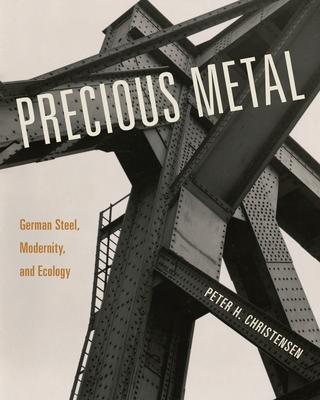With its incorporation into architecture on a grand scale during the long nineteenth century, steel forever changed the way we perceive and inhabit buildings. In this book, Peter H. Christensen shows that even as architects and engineers were harnessing steel's incredible properties, steel itself was busy transforming the natural world.
Precious Metal explores this quintessentially modernist material--not for the heroic structural innovations it facilitated but for a deeper understanding of the role it played in the steady change of the earth. Focusing on the formative years of the architectural steel economy and on the corporate history of German steel titans Krupp and Thyssen, Christensen investigates the ecological interrelationship of artificial and natural habitats, mediated by steel. He traces steel through six distinct phases: birth, formation, display, dispersal, construction, and return. By following the life of steel from the collection of raw minerals to the distribution and disposal of finished products, Christensen challenges the traditional narrative that steel was simply the primary material responsible for architectural modernism.
Based on the premise that building materials are as much a part of the natural world as they are of a building, this groundbreaking book rewrites an important chapter of architectural history. It will be welcomed by specialists in architectural history, nineteenth-century studies, environmental history, German studies, modernist studies, and the Anthropocene.
